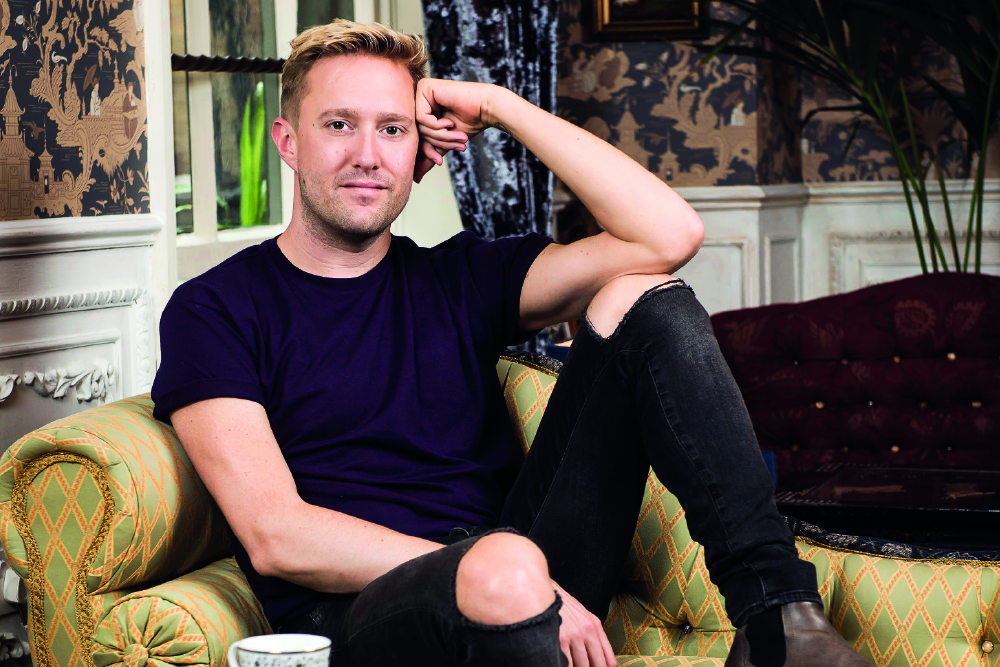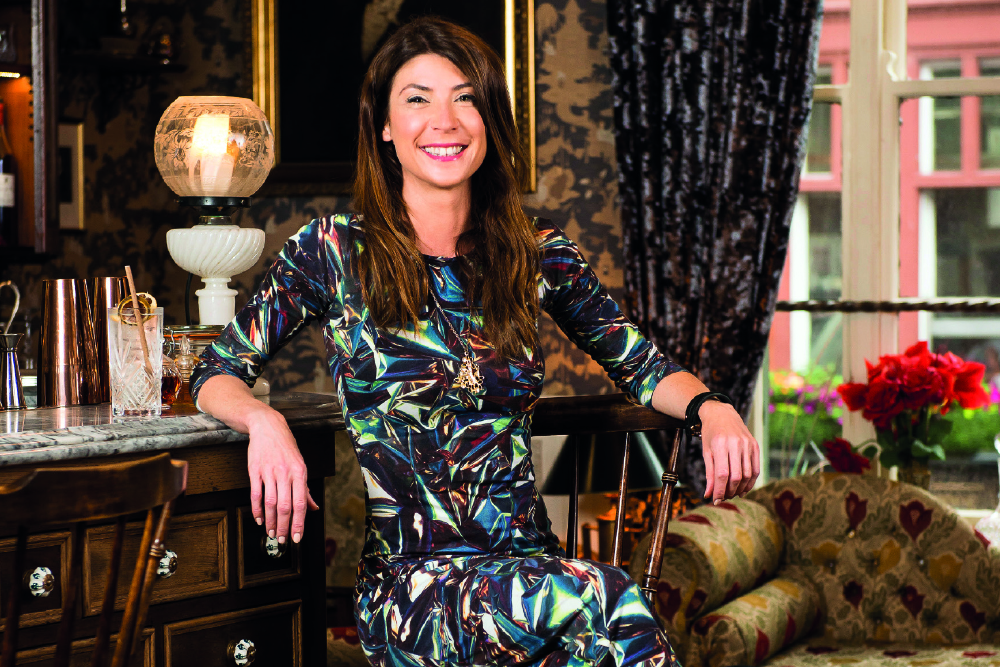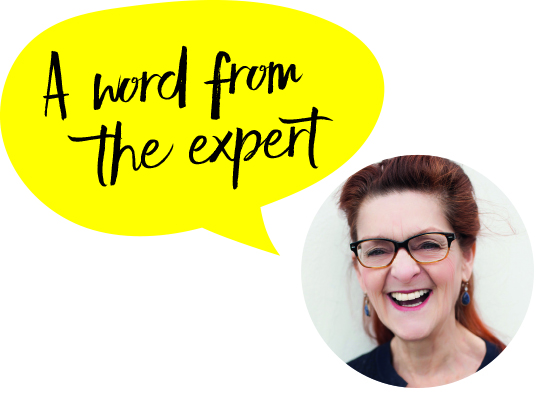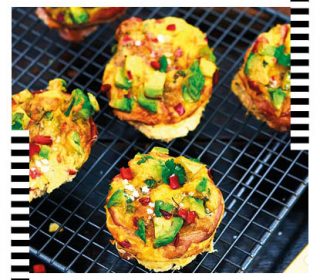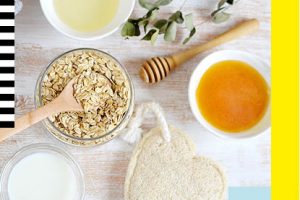What cutting out sugar and alcohol is really like
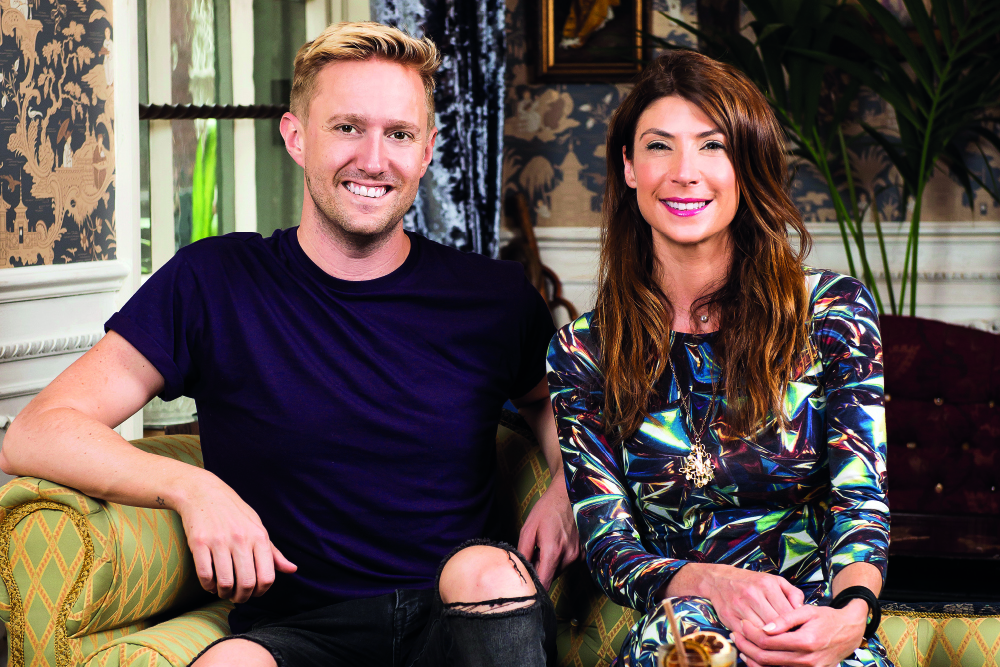
Dean Piper, 36, is a showbiz journalist who started out at the mirror’s 3am. He lives in Hampton Hill
‘I was the person sneering at the sugar-free morons in our society – avoiding the joy of cake, a night out on the pop and pretty much every item in a supermarket. Why?!
‘Yes, you guessed it folks; my name’s Dean Piper and I’m a sugar addict.
‘For 20 years I’d been a “two teaspoons” in tea or coffee kind of guy, I adored cereal and I welcomed ready-made sauces. I had no idea I was a slave to the refined sugar we all have hidden in every part of our “average” day-to-day lives.’
THE SWITCH
‘After a visit to The Body Camp in Ibiza, which a friend set up (and encouraged me to visit), my eyes were opened to a new way of life. And, after three months of eliminating sugar from my diet, I can’t ever see myself going back to the white stuff.
‘At the camp, we had a chef who prided himself on quinoa bread, green shots, and proudly told us that this was a resort with zero refined sugar. Shoot me now, I muttered under my breath.
‘By day three I had complete, uncontrollable rage. I slammed the door on my way out of yoga because the instructor’s breathing was annoying me, snapped at the trainer because of his “silly little” exercises and to top it off decided to escape camp to visit a coffee shop in town. “Look, you idiot, you’re like this because you’re coming off sugar,” said The Body Camp’s founder, Kate Whale.
‘She explained that the “healthy” cereal I was eating every morning actually contained 8tsp of sugar per bowl. This was the moment I realised I had a major problem. My diet was littered with sugar: ready meals, pasta sauces, sweets, fizzy drinks and biscuits.’
AN EDUCATION
‘To emphasise the point, I was made to watch That Sugar Film – a marvellous documentary by Australian health freak Damon Gameau, about just how easy it is to consume 42tsp of “hidden” sugar within our daily diet. It was a revelation. By day five, the benefits were obvious. My mood swings had stopped and I had zero cravings for anything sweet. I was drinking coffee without any form of sugar and it tasted sweet enough, any form of wind I once had was disappearing and I felt my energy levels going through the roof.
‘But how was I going to keep this up? I was petrified of how I was to continue my sugar-free life. On my first supermarket trip I was so confused with life, I just bought eggs.’
OBVIOUS BENEFITS
‘Fortunately, I had stats to help encourage me. In six days I’d lost 6lb and over an inch off my waist. Admittedly, I’d been exercising a lot, too, but I wasn’t just seeing food as a meal; I was seeing it as fuel.
‘Quitting sugar is difficult – it’s in everything, you need to check every label. Often, manufacturers don’t call it sugar, but if it ends in ‘ose’ (glucose, sucrose, fructose, lactose), it’s some form of sugar.
‘Now I’m eating chicken, fish and vegetables galore, I’m in the kitchen cooking from scratch at every meal time. The days of Maccie D’s and Chinese takeouts are long gone. No wonder I was craving chocolate every afternoon like clockwork, and snapping like a pterodactyl at anybody in my way during the day.
‘In the three months since quitting refined sugar, I’ve lost close to a stone. My mood swings and stress episodes have halved, my body has completely changed shape, any stomach issues I had have gone and I’m bouncing out of bed every day.
‘Transformation complete, and I’m sounding like the unbearable w*nker at the dinner party. But the changes I’ve made to my diet have opened my eyes to a new way of life. I look better now than I ever did in my twenties. I’m longing to tell everyone all about my “journey”… Hi, my name’s Dean Piper – I’m the w*nker who quit sugar.’
Charlotte Dormon, 36, is a writer and PR. She lives in Queens Park
‘After waking up on the Easter Bank Holiday Sunday with one of the
most hideous hangovers, I made the decision that I’d had more than enough of my weekends ruined by alcohol, and wanted to try embracing life without it.
‘I wasn’t exactly a big drinker, which is what made it seem all the more unfair when I did choose to indulge. Despite constantly threatening the next day that I would “never drink again”, I’d always have a party or event that would mean booze would be back on the menu.
‘Moderate drinking was an option, but it doesn’t always end up that moderate when you’ve got birthday parties, work dos, engagements or weddings booked in the diary. And even having a few glasses resulted in a Sunday feeling foggy headed.
‘I have always taken care of my health, eating well, taking vitamins daily, exercising and doing lots of yoga, so having a few drinks out at the weekend never really seemed like a big deal. But over the last six months I have been reading and writing a lot about wellbeing and self-development, and I realised that while I probably didn’t actually “need” alcohol to have a good time at these events, I had begun to rely on it to help me unwind, and that I should be able to enjoy life just as much without it. So I was keen to try an experiment for 90 days.’
BACK IN THE PLAYGROUND
‘The trickiest part when I was out was telling friends that I had given up drinking for a few months. I found it difficult to justify why I was doing it and prove that I would still be just as much fun, with or without a glass of wine. Even if I was craving one.
‘Be aware that this is not an easy challenge; people (unless you’re a liability when you drink, then your mates might be delighted) will find it hard to accept you turning down a drink if you have no other excuses, such as pregnancy, antibiotics or driving.
‘I got through it with a little help from the Dry January app, which kept me motivated and recorded my progress.
‘I practised daily affirmations and put positive messages around the house that made me feel good. I had: “I feel fantastic,I feel great” on a pinboard in my kitchen so I could see it each morning, with my non-hangover. This was especially important because I constantly battled with being told I was boring. Particularly at parties.
‘I’ve also learned to make my drink interesting to compensate for the lack of alcohol, so it’s been sparking water with fresh mint, fresh lime and elderflower cordial, and lots of ice. This way, you get a nice refreshing drink that also looks more like a cocktail.’
INNER CONFIDENCE
‘Most people think that going out is impossible without a drink but, at the end, I found it quite the opposite. I love my friends; I love going out to watch live music and being in a buzzy environment. I’ve actually found I feel less anxious and enjoy my night more, as I don’t have to worry about moderating any drinks for the next day. Plus, taking red ginseng an hour before going out has really helped me keep up with the party people.
‘These days, my mind feels clearer, I’m not craving sugary foods, and lots of people are commenting on how healthy my skin looks. Plus, I’ve saved lots of money, which
I can spend in the summer sales!
‘So, what about moving forwards? Well, after 95 days (yes, I did five extra days), I have just returned from Glastonbury, where admittedly I had five ciders over three days. I am a bit annoyed as I wanted to stay alcohol-free, but I figure general sobriety with a couple of drinks every now and then might be a better way to achieve a balance. But now I know I don’t need a drink to have a good time.
‘All my friends now know that I AM still fun without alcohol and that they can still hang out with me and enjoy life just as much. In fact, most of them have said they would be keen to give it a whirl.’
A WORD FROM THE EXPERT
DR BABARA MARIPOSSA
Psychologist and addictions expert
‘Whether it’s driving a car or negotiating the journey to work, we’re creatures of habit. Billions of nerve cells in your brain have, thanks to repetition, memory and learning, wired in patterns of behaviour like grooves on a record. All good, except when the automatic behaviour is detrimental and we can no longer exercise choice.
‘The stress of an exhausting day with a difficult boss, feelings of loneliness, frustration, or the need to belong to a social group can seem to be relieved by a few drinks, a bit of the white stuff, or the arms of a stranger.
‘Whether it’s sugar or self-criticism, bingeing on box sets or booze, we overindulge to relieve our feelings. The dopamine released in anticipation of the reward helps us feel good, but that feel-good factor is only short lived and leads to let-down and remorse.
‘The question is, where does conscious choice come in? If you can’t follow through on a desire to stop but, for example, find yourself compulsively shopping even though there’s a gigantic hole in your bank account, you’d do well to think about “breaking bad”. This means rewiring those pathways in your brain, and hooking up the reward centres to more wholesome targets; being self-aware so you can choose your actions even in the grips of the urge to indulge.
‘The smallest step towards developing beneficial habits can have a profound effect on your wellbeing. Even your genes, what people have hitherto considered as your destiny, are in fact, dynamic and respond to the way you think, feel, and act. Your predisposition is not your fate!
‘The way genes express themselves, how active they are, can be modified by simple lifestyle changes. Whether it’s cutting down on sugar, taking the stairs instead of the lift, eating more naturally colourful fruit and veg, or being generous and appreciative to yourself and others, you can make changes for the better, today.
‘Perhaps the most fundamental shift is your attitude towards yourself. You’re your most precious resource, and your body is a valuable vehicle for your life. Be kind to yourself. Learn to like the person in the mirror, and recognise that you are “worth it”. Your genes will love you for it!’
FIND YOUR BALANCE
10 steps to help you along the way:
1. Write down your goals daily to re-affirm your good intentions, so you can return to them
when tempted
2. Make yourself accountable to a trustworthy adult who will support you and not sabotage your attempts
3. Imagine the person you will be when you have ‘broken bad’ as if you are already there
4. Remove yourself from sources of temptation, especially in the early days when you’re more likely to crumble
5. Learn about your body, and the sensations that arise
6. Forgive yourself if you do slip up and cultivate kindness, generosity and appreciation, an attitude of gratitude
7. Introduce habits that bring more presence and choice into your life, like mindfulness
8. Take steps to improve your emotion regulation in constructive ways, rather than trying to numb them
9. Focus on what you want to achieve and how you want to live, not what you don’t want
10. Reward yourself with treats and recognise the positive changes you have made, however large or small



